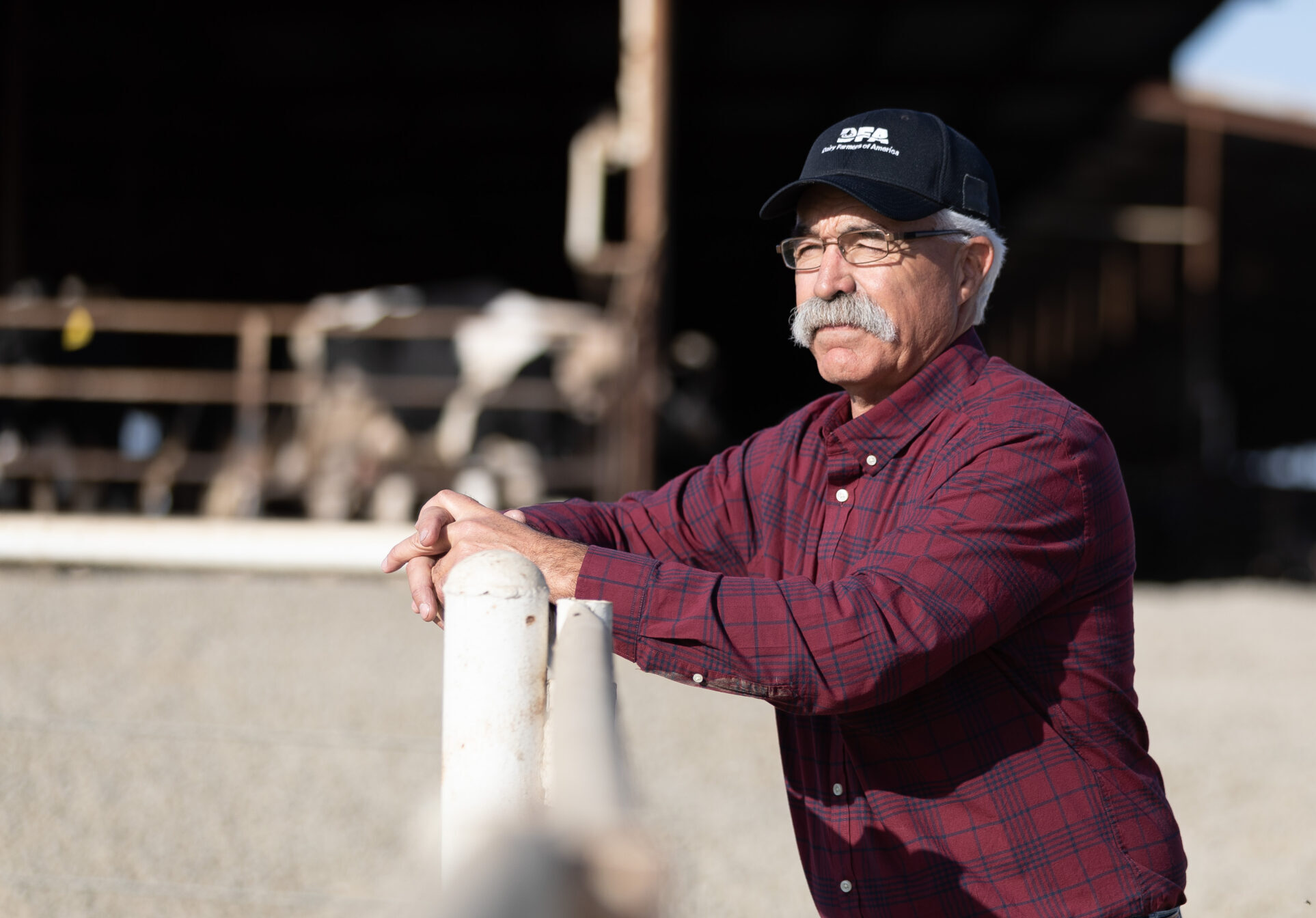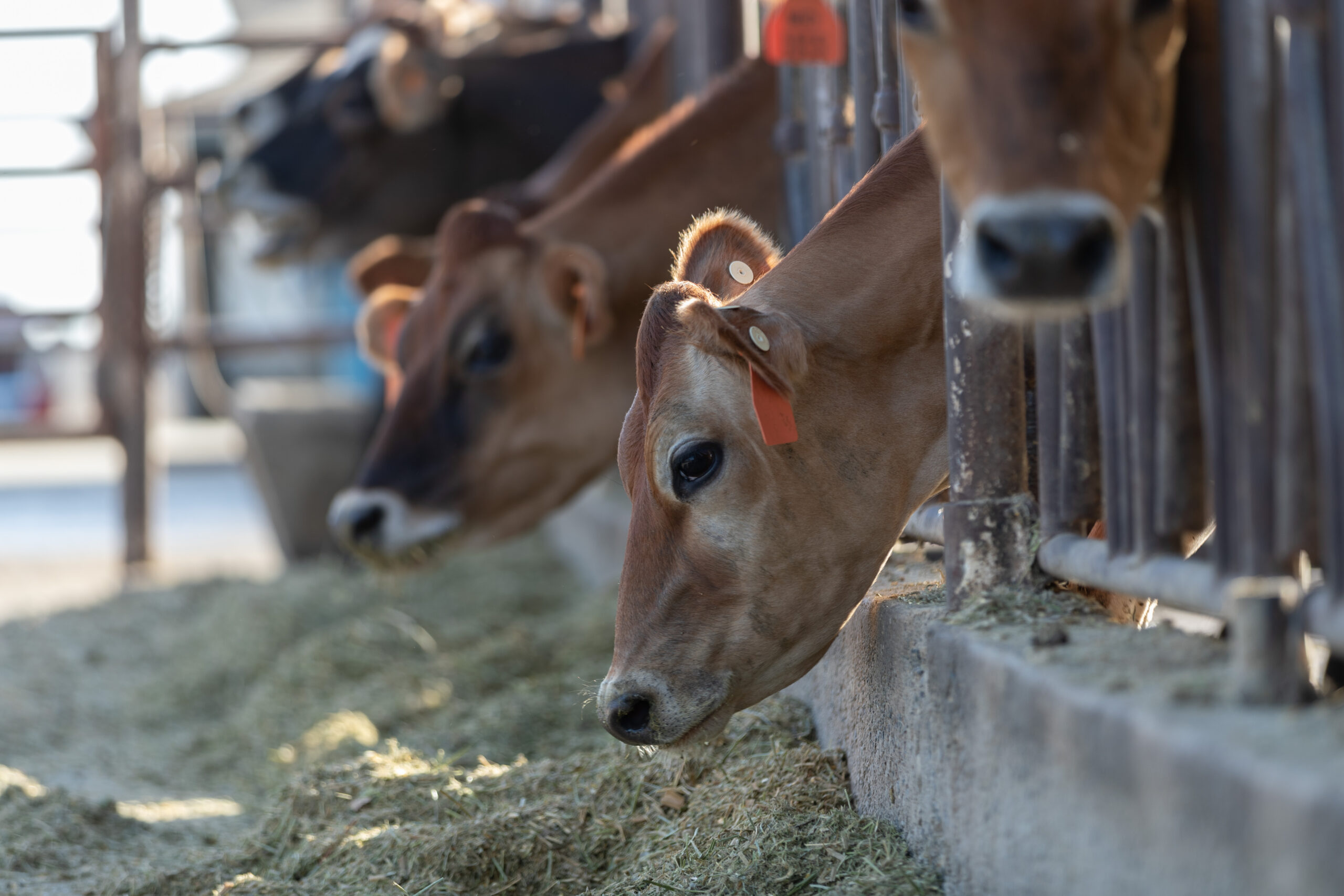- About
- Key Issues
Labor & Rural Policy
Sustainability
Animal Health
Nutrition & Food Safety
Labeling & Standards
- Programs & Resources
- Advocacy
- News
- Membership
- Events
- Stay Informed
- Contact
By Melvin Medeiros
Owner, Medeiros Holsteins
Dairy Farmers of America
As a dairy farmer whose family business has been milking cows for 53 years, here’s what I think: The dairy cow is the most efficient animal on Earth today.
It can be a central source of energy for the human body, and it could be a net exporter of energy for society — with the right policies in place. California cows can be sustainability solutions.
Dairy farmers for generations have dealt with changing weather patterns and moisture challenges, and it’s made us proactive. Research shows that producing a gallon of milk in 2017 required 30% less water, 21% less land, had a 19% smaller carbon footprint, and produced 20% less manure than in 2007.
Farmers are always working to identify new, innovative ways to conserve resources, reduce waste and work efficiently. The current buzzword is “climate-smart” agriculture. But climate-smart is just smart because it encourages efficiency, and what’s more efficient is more sustainable. It means asking new questions: What are the most drought-resistant crops we can plant? How do we move water across the farm? What’s the shortest path to get cows from one place to another? The answers to all these questions make a farm more efficient as well as sustainable.
About those cows. In 2009, the U.S. dairy industry launched the National Dairy FARM (Farmers Assuring Responsible Management) Program to encourage best practices across the industry, from how to best care for cows to safeguarding the environment and developing a high-quality workforce. FARM’s Environmental Stewardship initiative represents organizations that cover 80 percent of all milk produced in the United States. It provides a comprehensive estimate of greenhouse gas emissions and energy use on dairy farms, helping us know what we need to do better, and how to get better.
The industry has also launched the U.S. Dairy Net Zero Initiative, a partnership of the American dairy community that seeks a greenhouse-gas-neutral industry by 2050, if not sooner. But while big initiatives and evolving farming practices add up to a lot, truly game-changing progress beyond what’s already been done will require policy solutions.

Remember what I said about the cow being an alternative energy source? Dairy farmers see great value in adopting technology that turns emissions from manure into renewable fuels to diversify farm income as well as reduce odors and emissions. But significant financial challenges persist in this area, from high up-front costs to the lack of a stable market for on-farm energy production.
Incentives for farmers to finance digesters and nutrient recovery systems for manure would help dairy farms thrive financially while boosting renewable energy supplies.
Another way to aid dairy sustainability is through allowing and encouraging the adoption of additives to animal feed that greatly reduce a cow’s “enteric emissions” — a fancy way of saying burping — that can contribute up to one-third of a dairy farm’s greenhouse gases. New additives such as plant extracts, fats, oils, and other byproducts can significantly improve digestibility and reduce methane emissions by 30% or more.
Right now, the U.S. Food and Drug Administration approval process for these additives follows the same cumbersome process it uses for antibiotics and hormones, even though feed additives move solely through the animal’s digestive tract. This slows down progress, and dairy farmers support legislation to change FDA’s stance while encouraging farmers to use these additives.
Sustainability is dairy’s future, and dairy farmers are serious about it. We have to be — our families and businesses depend on it. American dairies have the lowest greenhouse-gas footprint per gallon of milk in the world; but our competition is positioning their way of farming and their products as more sustainable. Supporting farmer stewardship can help build a better future for everyone.
Dairy farmers have always known the good that cows can do. We’re making progress and hoping to see more for human diets and energy needs, and for a strong California industry for generations to come.
This story was originally published by the Fresno Bee on June 1. Click here for the post and visit www.fresnobee.com for more information.
